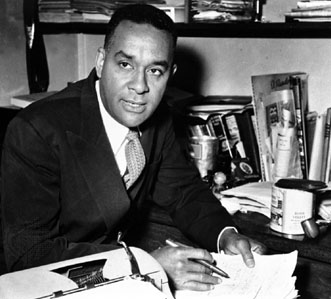Overall, I liked it - aside from an overall heavy-handedness (which seems like a natural by-product of trying to create social commentary within fiction), the novel was compelling and thoughtful. The similarities to Crime and Punishment were stifling at times, although in order to take the book seriously I have to believe that this was intentional. There's no way that he hadn't read it - just the fact that the central characters are allegorical Christ figures in both books shows allusion rather than coincidence.
I wasn't sure what the conclusion was though - the last interaction with Max is ambiguous and seems to suggest that the communists don't actually hold all the cards, in spite of Max's impassioned and persuasive speech. Perhaps there's a difference between action and words being drawn here (although it seems counterintuitive to downplay the power of words as an author. The story of Crime and Punishment is one of redemption... and Native Son suggests that we, as a society, are so far from redemption that only a condemned man can accept this truth.
The quote that just completely stunned me was this:
"The wooden cross hung next to the skin of Bigger's chest. He was feeling the words of the preacher, feeling that life was flesh nailed to the world, a longing spirit imprisoned in the days of earth."
-p. 286
So succinct and beautiful in its assessment of Christianity (although for the purposes of the book, Christianity is all religion).
"And still when the delicate and unconscious machinery of race relations slips, there will be murder again."
"'Mr. Max, how can I die!' Bigger asked; knowing as the words escaped his lips that a knowledge of how to live was a knowledge of how to die."
"He could not talk about this thing, so elusive it was; and yet he acted upon it every living second."
This last quote suggests that the framework for Wright's understanding of the African-American experience is a Freudian one... which I'm not sure what to think about.
Anyway, brief thoughts - I'm no literary analyst, just pretending for a second that I am...
